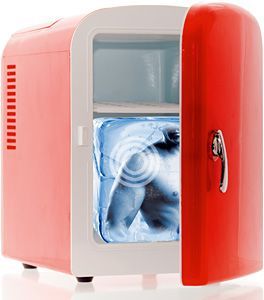It’s a new year and many chiropractors are evaluating what will enhance their respective practices, particularly as it relates to their bottom line. One of the most common questions I get is: “Do I need to be credentialed to bill insurance, and what are the best plans to join?” It’s a loaded question – but one every DC ponders. Whether you're already in-network or pondering whether to join, here's what you need to know.
That Frozen Shoulder Could Be a Tumor
Malignant tumors in and around the shoulder are extremely rare compared to frozen shoulder syndrome,1 but it happens that signs and symptoms of shoulder-area tumors often mimic the frozen shoulder, and shoulder X-rays may not reveal the underlying tumor. In one study of shoulder girdle neoplasms mimicking frozen shoulder syndrome,2 the presenting symptom was a stiff shoulder without radiographic abnormality in 7 of 67 patients. The tumors included osteoid osteoma, osteoblastoma, metastatic carcinoma, chondrosarcoma, periosteal lipoma and acute lymphoblastic lymphoma.
Pancoast-type tumor (an upper lobe cancer) often causes severe shoulder pain. In the aforementioned study, the diagnosis was established in all cases by MRI. According to the study authors, 90 percent of shoulder cases with neoplasms were diagnosed by either physical examination or plain radiographs, and 10 percent of shoulder girdle tumors presented with normal radiographs and without a palpable mass.2
In another study, nine (26 percent) of 34 tumor patients had been initially misdiagnosed with frozen shoulder syndrome.1 In 10 patients, initial misdiagnosis of frozen shoulder did cause a significant delay to reach the correct diagnosis as malignant tumors. On average in this series, it took nine months to come to the final correct diagnosis. A reason for this delay could be that most practitioners experience longer periods of treatment for primary frozen shoulder than, for example, rotator cuff lesions.

Frozen shoulder has no specific radiological findings and its typical findings are pain and limited passive motion. Frozen shoulder is usually divided into three phases: the freezing phase with severe aching; the frozen phase with progressive stiffness in most directions; and finally the thawing phase, where the range of shoulder motion slowly recovers. Most of the cases I have seen over the years have been in the frozen stage, and patients only experience pain when their shoulder is put into the limited end ranges, particularly lateral rotation, glenohumeral abduction (with the scapular stabilized) and internal rotation, all part of Cyriax's capsular pattern. In this frozen stage, resistive testing of the cuff muscles are usually negative, as the fibrotic shoulder capsule seems to be the main pathological culprit.
Lundberg3 described a "secondary" frozen shoulder with stiffness and pain associated with a local abnormality following a fracture, or after radical mastectomy, after defibrillator implantation or even hormonal imbalance.4 Frozen shoulder is rather common in diabetics and is not as easy to resolve.
Some of the red flags that might make us think of tumor include a stiff and painful frozen shoulder in younger people, although it can occur in older patients, too. Tumor patients also may have lower fatigue/energy dimension scores on the RAND short Form-36 health survey.1
Gentle percussion producing pain on the relevant pathological bone over the clavicle, coracoids, humeral head (harder tapping is necessary for stocky individuals), scapular spine and scapular body may be relevant. If this tapping is positive a bone scan should be considered. Gentle tapping should be differentiated from pain produced by firm pressure, which is more common in rotator cuff syndrome and primary frozen shoulder syndrome.5
References
- Sano H, Hatori M, Mitsuyoshi M, et al. Tumors masked as frozen shoulder: a retrospective analysis. J Shoulder Elbow Surg, 2010;19:262-266.
- Robinson D, Halperin N, Agar G, et al. Shoulder girdle neoplasms mimicking frozen shoulder syndrome. J Shoulder Elbow Surg, 2003;12(5):451-455.
- Lundberg BJ. The frozen shoulder. Acta Orthop Scand, 1969;119(suppl):7.
- Wohlgethan JR. Frozen shoulder in hyperthyroidism. Arthritis Rheum, 1987;30:936-9.
- Neviaser TJ. Adhesive capsulitis. Orthop Clin North Am, 1987;18:439-43.


